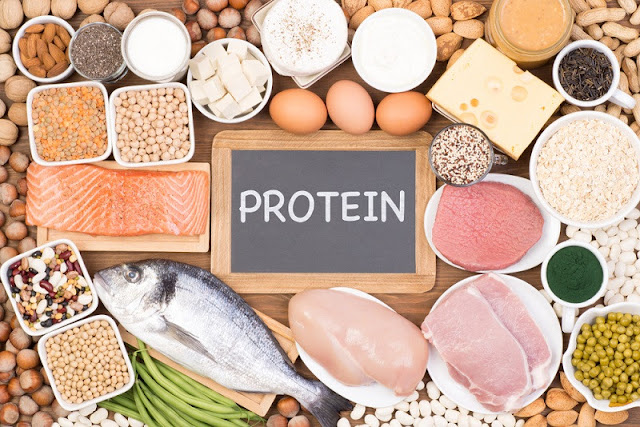Why you should be afraid of Carbohydrates?
Macro nutrient: Carbohydrate.
 |
| Credit |
Carbohydrates can be found in almost all the major sources of food. They are in general a combination of sugars, starch and fibers which provide 4kcal (kilo-calorie) of every 1 gram consumed. It is said to be the primary source of energy for our bodies.
It is one of the three major macro-nutrients which provides the major calories for our body in order to give us energy. Leaving all of the jargon I will try to make this simple and useful for you. So, what all you need to know, how much and when to consume and which all are the groups rich in carbohydrates and which ones are better comparatively this all would be answered here. If you have any further queries feel free to revert back.
So, where exactly we can find carbohydrates?
As mentioned earlier, almost all major foods have carbs in it. These are carbohydrate rich foods: Grains and legumes, sweets and sugar based drinks, bread, rice, cereal, fruits and vegetables like potato are rich in carbohydrate content.
Carbs are required for the functioning of our brains. They help in smooth function of CNS (Central nervous system). Over the years, we have always believed that carbohydrates are the major and the primary source of food for providing energy and has always been placed in the bottom of the pyramid.
However, it
has become one of the most controversial topics of all time. Various theories
have come up now stating the harmful effects of consuming excessive carbs like
Type 2 diabetes, obesity and negative impact on our hearts smooth functioning. We may be following this for a long time. Really long time. However it is quite clear now that with change in time and our lifestyle and how even the science has developed so far following this is not such a great idea. See for yourselves how obesity and diabetes and other such medical conditions has rapidly grown.
According to researchers, carbohydrates are important however not so much that you consume 50-70% of your daily intake of calories and fulfill it with carbohydrates only. There are still 2 other macro nutrients present which can suffice the need i.e. Proteins and Fats. I would still recommend 30gms i.e. at least 120kcal from carbohydrates in a day. Does it seem very much? NO.
An average lunch plate i.e. 3 chapatti, sabzi , daal and some rice with a bowl of curd on the side evaluates to a minimum of 400kcal. Yes, 400kcal is what we consume in only lunch. However, in the earlier article we did agree to the fact that good calories are our friend and bad calories as foe.
Now, we just have to make sure we have to move to consuming comparatively better carbohydrates which will add up to the good calorie part. How can we achieve that?
So carbohydrates can further be divided into different categories: Monosaccharide, Disaccharides, Oligosaccharides and Polysaccharides.
Leave the technical terms and what we have to focus on is the GI (glycemic index) of the food.
This is nothing but a score ranging from 0-100 for each food which denotes how fast the food affect the blood glucose levels.
For example, they say bajra/jowar are good for health as compared to whole wheat. Why?
The Glycemic index for whole wheat is more than 70. However, bajra has a GI of 54 and jowar of 62 which states that Jowar/bajra takes more time to digest and get absorbed into the body and thus making blood glucose level rise slowly as compared to whole wheat.
You can check this link for more details on Food with their approx. GI.
Functions of carbohydrates
Apart from providing energy to our body there is no such other important function. However, at least 30-50gms of carbs are needed for our central nervous system in order to work smooth.
How to calculate your daily calorie intake?
There are a lot of ways and methods based on your requirement. One generic method could be used as:
Your actual weight, let’s say 80kgs. Minus 20-25% of fat, according to you, it could be as high as 40% in some cases, gives you 60kgs of lean body in this case.
Now, Carbs as per your requirement, I would recommend 50-100gms of it. Protein to be 1 gm each of your lean body which in this case is 60gms. Now fats can be consumed as much as of 60-120gms. Don’t get confused with fats. I am talking about good fats here. So total kcal intake for this person is C-100gms, P-60gms and Fats-100gms which gives approx. 1500kcal in a day i.e. on avg 375kcal per meal.
Stay tuned for updates on Proteins and Fats in my next article. We will also see how much of each has to be consumed and functions related to them.
Stay Fit.
Stay Healthy. Enjoy your calories. Only the good ones. ;)






Very well explained!! What a better way to act smartly without even compromising on your diet..
ReplyDeleteVery well explained!! What a better way to act smartly without even compromising on your diet..
ReplyDeleteInsightful. Now I see how much important is having 3 proper meals a day.
ReplyDeleteWow! Very insightful.
ReplyDeleteVery informative...keep it up...
ReplyDeleteVery insightful
ReplyDeleteNice article ....
ReplyDeleteGr8
ReplyDelete